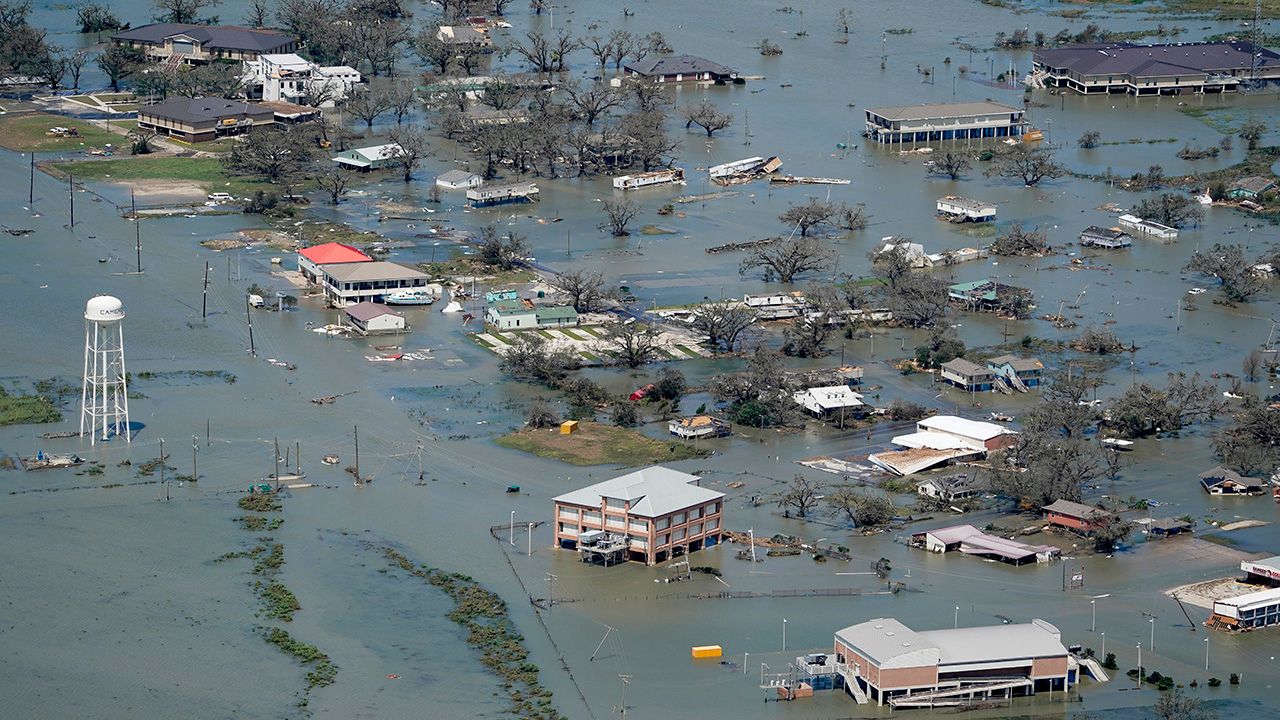-
Insurance
- Trout Team
-
Resources
-
Community
- 50+ WNC Articles
- Understanding Medicare 2024
- Weaverville Primary Spring Fling
- Alignment's 5-Star Switch
- Employer Networking w/ Just Economics
- FALLing with Families
- Blue Ridge Pride Festival
- Goombay & YMI
- YMI Winter Coat Drive
- Medicare Seminar
- Art in Autumn + MANNA
- Music on Main
- Western Women's Business Center Conference
- Mural on Main Street
- Back to School
- Weaverology
- Contact Us
|
The Centers for Medicare & Medicaid Services (CMS) recently announced important updates for Medicare beneficiaries. These updates include a projected decrease in the average monthly premium for Medicare Part D plans in 2024 and significant changes to the catastrophic coverage drug phase.
These developments will help provide beneficiaries with lower out-of-pocket costs and improved coverage options. Below, we discuss the details of these changes and their potential impact on you, the beneficiary. For More Information on the changes to Medicare Prescription Drug Plans, click the link to the article HERE
0 Comments
5 Factors That An Insurance Company Might Assess Prior To Underwriting Your Health Insurance Plan8/24/2023 Insurance companies assess health insurance applicants based on medical history, age, lifestyle habits, current health, medication, and other factors.
With rising medical costs, having a health insurance policy is very important. A health insurance policy will cover lakhs of rupees in hospital bills if you pay a certain premium yearly. However, when you apply for a health insurance policy, the insurance company will assess different factors to decide whether you are eligible for the policy and the premium. Learn more Here. In the wake of Covid, travel insurance sales have spiked with the rebound in travel as people seek to protect their investments against flight delays and cancellations, extreme weather events, and the persistence of the virus. But travel insurance is complicated with a range of benefits, inclusions, and prices. Here’s what you need to know before you buy.
Know what’s covered: Generally speaking, travel insurance covers unforeseen events, like an illness in the family, the loss of a job, or a natural disaster, that force you to cancel or interrupt a trip. It can also apply in the event of a strike at a transportation company, a terrorist attack at your destination, or when your travel provider goes bankrupt. These are known as covered reasons. Most polices also include medical coverage, which is useful abroad where your health insurance may not cover you. While policy prices vary based on age, length of travel, and type of coverage, expect to pay between 4 to 10 percent of your entire trip cost to get insured. Learn More About Travel Coverage in this article written by Elaine Glusac at the New York Times HERE Elaine Glusac Insurance companies want to hike rates for rental and investment properties by nearly 50% statewide, but a lot more at the coast. Why? Blame climate change and rapid growth If you own a second home at the beach or an investment property, prepare to take another hit in the pocketbook.
Less than eight months after raising insurance rates on rental properties by a statewide average of nearly 10%, the group that represents the state's insurance industry wants to increase the cost of new and renewing policies by more than half starting next summer. Continue to read this article by Gareth McGrath USA TODAY NETWORK HERE CMS projects average monthly prescription drug charge to fall by nearly $1The average monthly premium for Medicare Part D prescription drug coverage is expected to fall slightly in 2024, to $55.50, a 99-cent drop from the 2023 average of $56.49, the Centers for Medicare & Medicaid Services (CMS) announced on July 31.
The amount beneficiaries will pay in 2024 will vary depending on which prescription drugs they take, what plan they pick and where they live. In addition to premiums, deductibles and copays also vary by plan. CMS says more than 51 million Medicare beneficiaries currently have prescription drug coverage. More information about the Part D Premium decrease can be found at AARP.org Learn more about your Medicare options at MedicareOptionsForYou.com A growing number of Americans are working past age 65—typically the age when you enroll in Medicare. But if you’re still getting health insurance through your employer at that age, does it make sense to move to Medicare?
The best answer to that question depends on factors unique to you, including:
When navigating the question “When should I enroll in Medicare?” it’s important to step carefully in order to avoid stiff late enrollment penalties for Medicare Part B (outpatient services) and smaller penalties for Part D (prescription drugs). Let’s walk through the rules on timing your Medicare enrollment, and the tradeoffs of these decisions. More information found here at Morningstar.com Learn more about your options at MedicareOptionsForYou.com  The increased frequency and intensity of natural disasters in the United States, and the growing concerns with Climate Change have caused insurance companies to react with increased rates and some reductions in coverage. Below are some tips to help make an informed decision when purchasing your next home or home insurance coverage. Before the Purchase Before purchasing a home or home insurance policy, examine the risks. You can enter the home address into a Risk Calculator, like Risk Factor to help look for potential perils. Also, consult with your agent about what insurance carriers could work best, and to check on the carrier's rating from A.M. Best. Review Your Policy Shop around for new policies each year, as rates and needs can change. For example, inflation has drastically impacted construction costs, so your existing coverage may not be enough to cover major repairs. Read the terms of your coverage. Make sure your "Replacement Costs" of your home and it's contents are covered. We recommend contacting your agent to review this policy information. Reduce Costs Bundling home and auto coverage (among others) is one potential way to get a discount and save money. Getting the most coverage for your money is a priority, so also make sure that you're over insured for perils that may don't affect you. Home improvements, like securing your roof from wind damage or cutting brush back to reduce fire risk will reduce risks to your house and may also deliver some savings on your insurance. Contact your agent today to learn more about your policy and explore other options. Your family, their future, and their security are your main priorities. You've created a strong foundation to build that on, but what would happen if half or all of that foundation were to be weakened? Would your family be able to maintain their standard of living if you were unable to work due to an injury from an accident or an illness? The right combination of insurance policies can provide you with much-needed assistance when you need it - and for an affordable amount. Purchasing Life Insurance while you're younger can have its advantages
Contact Trout Insurance or click the button below to learn more!
Oral healthcare is an essential component of overall healthcare. Good oral health has been linked to a range of health benefits, including improved cardiovascular health, better management of diabetes, and reduced risk of some cancers. Conversely, poor oral health has been associated with a range of negative health outcomes, including chronic pain, tooth loss, and infections that can spread to other parts of the body. Here are some ways that oral healthcare can improve overall healthcare: 1. Prevention of Systemic Diseases: Poor oral health has been linked to a range of systemic diseases, including cardiovascular disease, diabetes, and respiratory infections. Regular dental check-ups and cleanings can help detect and prevent these diseases. 2. Early Detection of Health Issues: Regular dental check-ups can help detect early signs of health issues such as oral cancer, gum disease, and cavities. Early detection allows for early intervention, which can improve overall health outcomes. 3. Improvement of Chronic Conditions: Many chronic conditions, such as diabetes and heart disease, can be managed more effectively with good oral healthcare. For example, treating gum disease can help improve blood sugar control in people with diabetes. 4. Improved Nutrition: Good oral health is essential for proper chewing and digestion, which in turn helps maintain good nutrition. This is particularly important for children, whose overall growth and development can be impacted by poor oral health. 5. Improved Mental Health: Poor oral health can also impact mental health, leading to feelings of low self-esteem and social isolation. Good oral health can help improve self-confidence and overall mental well-being. Oral healthcare plays a crucial role in overall healthcare. By maintaining good oral health and visiting your dentist for routine cleanings, individuals can reduce their risk of developing systemic diseases, detect health issues early, manage chronic conditions more effectively, improve their nutrition, and enhance their mental well-being.
Contact Trout Insurance Services to learn more about dental options in Western North Carolina. The market for commercial property insurance continues to be challenging. Here are several factors contributing to premium increases for commercial property coverage. Catastrophe LossesHurricanes, floods, wildfires, tornadoes, winter storms. The frequency and severity of major catastrophes continue to stress the industry. In five of the past six years, these events have caused annual insured losses of more than $100 billion globally. Last year, total insured losses globally were estimated at a staggering $140 billion. ReinsuranceCatastrophic events are a major factor driving up the cost of reinsurance — an expense primary carriers need to pass along to customers. At the same time, inflation and the economic environment has been making reinsurers more selective. In early 2023 the gap between reinsurance supply and demand was estimated at $60 billion, three times what it was the previous fall. UnderinsuranceRecent inflation has driven the cost of materials and services much higher, but just 43% of business owners say they have increased their policy limits to accurately reflect what it would take to replace insured property now. Customers must have accurate valuations for their assets so they don't come up short after a loss, and premiums will reflect those higher values. Property Replacement CostsLed by a 55% increase in the cost of structural steel and a 35% increase in the price of lumber, construction costs have jumped over the past three years: Nonresidential is up 36% and multifamily residential is up 32%. Similarly, machinery and equipment costs have increased 18% over the same period. Many contractors continue to grapple with materials shortages and supply chain disruptions as well. Skilled Labor ShortageNearly half of reconstruction costs are wages and salaries, which have increased 16% over the past three years. Even with higher pay, nine out of 10 contractors are struggling to find skilled labor and are delaying projects as a result. Higher rebuilding costs and longer delays may trigger an increase in business interruption losses. Property Rate NeedFor years, escalating loss trends have outpaced rate increases, primarily because of the costs of catastrophes, severe weather and large fires. Expect carriers to raise rates again this year to close the gap.
|
“We do not offer every plan available in your area. Any information we provide is limited to those plans we do offer in your area. Please contact Medicare.gov or call 1.800.Medicare to get information on all of your options.”
Trout Insurance is an independent authorized agency licensed to sell and promote products from Blue Cross and Blue Shield of North Carolina (Blue Cross NC). The content contained in this site is maintained by Trout Insurance. Blue Cross and Blue Shield of North Carolina is an independent licensee of the Blue Cross and Blue Shield Association. ®, SM Registered marks of the Blue Cross and Blue Shield Association.”
|
Effective June 28, 2024; Jessica Cody & Jeremy Sheridan are no longer associated or appointed with or through Trout Insurance Services, Inc.
They may be reached at 828-713-8640 – Cody, 828-606-7994 – Sheridan.
This is an amiable separation and they have our confidence they will continue to act as the professional agents as they have demonstrated over the years with TIS. Our agreement includes provisions that they will retain the agreed policies which they previously directly managed under the Trout Insurance agency license. They will be initiating “Agent of Record Transfers “ to their new agency and /or insurance companies and we will honor those requests. Until those transfers are effective, Trout Insurance retains the fiduciary responsibility under our North Carolina Department of Insurance license & obligations to service your policy. Our commitment is to do so in a polite, effective and efficient manner.
Please send any and all requests and questions to this designated email address: [email protected] or call 828 – 519-5218. these are monitored daily. Please allow three working days for our response and resolution. Please further note that policy changes may not be changed or bound via voicemail or merely email. Per insurance regulations, a licensed agent appointed by that company must make the change.
They may be reached at 828-713-8640 – Cody, 828-606-7994 – Sheridan.
This is an amiable separation and they have our confidence they will continue to act as the professional agents as they have demonstrated over the years with TIS. Our agreement includes provisions that they will retain the agreed policies which they previously directly managed under the Trout Insurance agency license. They will be initiating “Agent of Record Transfers “ to their new agency and /or insurance companies and we will honor those requests. Until those transfers are effective, Trout Insurance retains the fiduciary responsibility under our North Carolina Department of Insurance license & obligations to service your policy. Our commitment is to do so in a polite, effective and efficient manner.
Please send any and all requests and questions to this designated email address: [email protected] or call 828 – 519-5218. these are monitored daily. Please allow three working days for our response and resolution. Please further note that policy changes may not be changed or bound via voicemail or merely email. Per insurance regulations, a licensed agent appointed by that company must make the change.
-
Insurance
- Trout Team
-
Resources
-
Community
- 50+ WNC Articles
- Understanding Medicare 2024
- Weaverville Primary Spring Fling
- Alignment's 5-Star Switch
- Employer Networking w/ Just Economics
- FALLing with Families
- Blue Ridge Pride Festival
- Goombay & YMI
- YMI Winter Coat Drive
- Medicare Seminar
- Art in Autumn + MANNA
- Music on Main
- Western Women's Business Center Conference
- Mural on Main Street
- Back to School
- Weaverology
- Contact Us














 RSS Feed
RSS Feed
